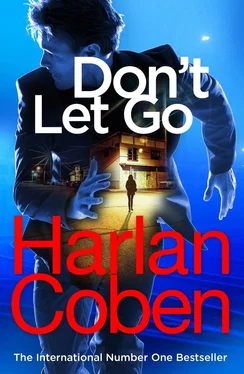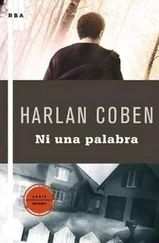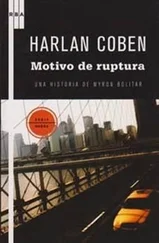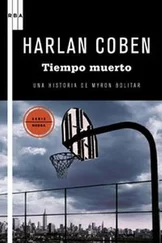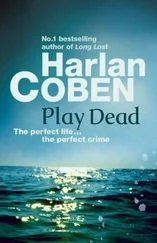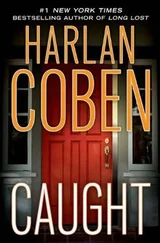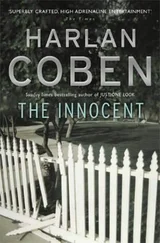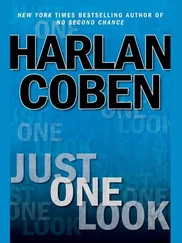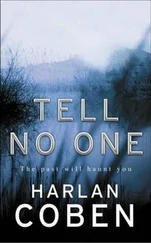I look at the slip of paper as though the phone number will give me a clue.
Ellie leans back. “How did it go with tracking down Hank?” she asks.
“Not well.”
“The plot thickens.”
“It does.”
“Oh, before you go, Marsha wanted to see you.”
“I’m on my way.”
I kiss Ellie on the cheek. Before I head to Ellie’s colleague Marsha Stein’s office, I veer left and take the stairs to the second level. There is a makeshift day care for the kids. I look inside and see Brenda’s youngest working on a coloring book. I continue down the corridor. The door to her bedroom is open. I knock lightly and look inside the small room. Two open suitcases sit on the bed. When Brenda sees me, she rushes over and wraps her arms around me. She has never done that before.
Brenda doesn’t say anything. I don’t say anything.
When she lets go, she looks up and gives me a small nod. I give her a small nod back.
We still don’t say anything.
When I head back into the corridor, Marsha Stein is waiting for me.
“Hey, Nap.”
When we were eight and nine years old, Marsha was our teenage babysitter. Do you remember, Leo? She was lithe and gorgeous, a ballerina, a singer, the star of every high school play. We had crushes on her, of course, but so did everyone. Our favorite activity when she babysat was helping her rehearse for her plays. We would read her lines. During her junior year, Dad took us to the high school to see her play Hodel, the beautiful daughter, in Fiddler on the Roof. Senior year, Marsha capped off her theater career playing the titular lead in Mame. You, my brother, got to play the part of Mame’s nephew, listed in the program as “Young Patrick.” Dad and I went four times, and Marsha deservedly got a standing ovation at every performance.
Back in those days, Marsha had a ruggedly handsome boyfriend named Dean who drove that black Trans Am and always, no matter how hot or cold the weather, wore his varsity wrestling jacket, the green one with the white sleeves. Marsha and Dean were the “Class Couple” in the Westbridge High School yearbook. They got married a year after graduation. Not long after that, Dean started to beat her. Savagely. Her eye socket is still caved in on the right. Her face looks disjointed now, off-kilter. The nose is too flat from the years of beating.
After ten years, Marsha finally found the courage to run away. As she often tells the abused women here, “You find the courage too late but it’s never too late and yes, that’s a contradiction.” She joined forces with another “child” she babysat in those days, Ellie, and together they formed these shelters.
Ellie is CEO. Marsha prefers to stay behind the scenes. They now operate one shelter and four transition homes like this. They also have three locations with addresses that are completely unknown to the public, for obvious reasons. They have a pretty good security system, but sometimes I chip in.
I kiss Marsha’s cheek. She isn’t beautiful anymore. She isn’t old, early forties — when life gets beaten out of those who shine brightest, they recover, but sometimes that light never quite comes all the way back. She still likes acting, by the way. The Westbridge Community Players is putting on Fiddler in May. Marsha plays Grandma Tzeitel.
She pulls me to the side. “Funny thing.”
“Oh?”
“I tell you about what a monster Trey is and suddenly he ends up in the hospital.”
I say nothing.
“A few months ago, I told you about how Wanda’s boyfriend sexually abused her four-year-old daughter. Suddenly he ends up—”
“I’m kind of in a rush, Marsha,” I say to stop her.
She looks at me.
“You can choose not to tell me your problems,” I say. “That’s up to you.”
“I pray first.”
“Okay.”
“But praying doesn’t work. That’s when I go to you.”
“Maybe you’re looking at it wrong,” I say.
“How’s that?”
I shrug. “Maybe I’m just the answer to those prayers.”
I cradle her face in both hands and kiss her cheek again. Then I hurry out before she can say more. You probably wonder how I, as a cop sworn to uphold the law, justify what I did to Trey. I don’t. I’m a hypocrite. We all are. I do believe in the rule of law, and I’m not a huge fan of vigilantism. But I don’t look at what I sometimes do that way. I look at it like the world is a bar and I see a man across the room beating the crap out of a woman, taunting her, laughing at her, cajoling her to give him one more try like Lucy holding the football for Charlie Brown, and then, after offering her this hope, cruelly smashing her in the face again. I look at it like I just stopped by a friend’s house and saw her boyfriend sexually assaulting her four-year-old daughter.
Is your blood boiling?
Should time and distance cool that?
So I pounce. I stop it. I have no illusions. I choose to break the law, and if I’m caught, I’ll pay the penalty.
I admit this isn’t a great justification, but I don’t really care.
I start driving west toward the Pennsylvania border. There is, of course, a great chance Simon Fraser will not be in his office. If so, I will visit his house or wherever he may be. I may miss him. He may refuse to see me. This is how detecting works. You keep going even if what you’re doing seems like a momentous waste of time and energy.
I think about you as I drive. Here is my problem: For the first eighteen years of my life, I have zero memories that aren’t entangled in you. We shared a womb; then we shared a room. There was, in fact, nothing we did not share. I told you everything. Everything . There is nothing I kept from you. There is nothing I was embarrassed or ashamed to tell you because I knew you’d still love me. For everyone else, there is a bit of a facade. There has to be. But with you and me, there was none.
I held nothing — nothing — back. But sometimes I wonder: Did you?
Were you keeping secrets from me, Leo?
An hour later, still driving, I call Dr. Beth Fletcher née Lashley’s office. I give my name to the receptionist and ask to speak to Dr. Fletcher. The receptionist tells me the doctor isn’t in right now. In that weary, put-out voice only a doctor’s receptionist can pull off, she asks what this is regarding.
“I’m an old friend from high school.” I give her my name and mobile phone number. Then I add with as much urgency as I can muster: “It’s really important I talk to her.”
The receptionist is unfazed. “I’ll leave a message.”
“I’m also a cop.”
Nothing.
“Please page Dr. Fletcher and tell her it’s important.”
The receptionist hangs up without promising that she will.
I place another call to Augie. He answers on the first ring and says, “Yeah.”
“I know you want to stay out of this,” I say.
No reply.
“But could you tell your patrol guys to keep an eye out for Hank?”
“Won’t be hard,” Augie says. “He takes the same walk every day.”
“Not this morning.”
I fill Augie in on my earlier failed stakeout by the Path. I also tell him about my visit to the pickup basketball game last night. Augie is silent for a bit. Then he says, “You know that Hank is not, uh, well, right?”
“Right.”
“So what exactly do you think he’s going to tell you?”
“Damned if I know,” I say.
More silence. I’m tempted to fill it with an apology for abruptly unearthing something he tried hard to keep buried, but I’m not really much in the mood to offer platitudes, and I doubt Augie would want to hear them.
“I’ll tell the guys to radio me if they see him.”
“Thanks,” I say, but he’s already hung up.
Читать дальше
